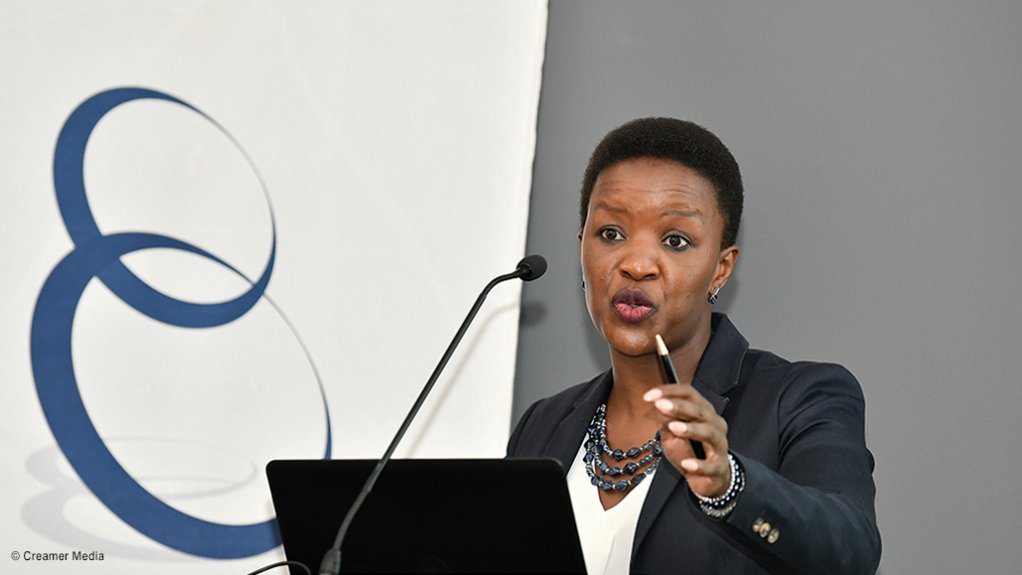Business Leadership South Africa (BLSA), whose members include the largest domestic and foreign companies operating in South Africa, has added its voice to a growing chorus of opposition to the draft Integrated Resource Plan 2023 (IRP 2023) and has called for it to be “revised immediately”.
Writing in her weekly newsletter, CEO Busisiwe Mavuso said no good case had been built for the assumptions in the IRP 2023 and warned that the document was “tainting” the positive news associated with reduced levels of loadshedding, which she attributed to the Energy Action Plan and the collaboration between government and business.
“The first, overarching problem, is that it goes against the least-cost principle and presents some spurious costing estimates that appear to elevate the price of renewable energy and underestimate the cost of fossil fuels.
“Then it slashes the amount of renewable energy – still easily the cheapest form of new energy generation – to be installed between 2024 and 2030 via public procurement from 15.2 GW in IRP 2019 to 8 GW in IRP 2023.
“The huge increase in the allocation to gas is also eyebrow-raising – it allocates 7.22 GW to gas-based generation, up from 3 GW in the IRP 2019,” Mavuso writes, while noting an absence of the infrastructure required for the importation of gas.
Also questioned is the IRP 2023’s assumption of a delayed coal shutdown, which failed to take account of the extension costs, and the market reality that “funding for new fossil fuel ventures does not exist”.
The document’s misalignment with domestic climate policy is also highlighted, along with the threat posed to business by the imminent implementation of carbon taxes.
Mavuso said the 900 MW yearly allocation in the IRP 2023 for rooftop solar was an underestimate in light of the fact that far higher levels of deployment were already being achieved. While the low future demand trajectory assumed “puts the entire modelling process at risk”.
“The bottom line is that we need electricity that is affordable, reliable and can come onstream quickly.
“Anything that goes against that doesn’t make sense and the IRP needs to be reworked to facilitate this – it’s an imperative to enable economic growth and boost employment,” Mavuso wrote.
She also referred to the document as but one example of bad policy, mitigating against economic growth and employment creation.
“To get to the point where the economy is growing fast enough to create jobs at a significant rate, all the dysfunctional elements need to be remedied,” she added, highlighting transport and logistics, water, infrastructure, poor service delivery, State company inefficiency and ongoing corruption as key concerns for business.
“Opposition within government to reforms slows everything down at best or results in failure,” she added.
BLSA’s input on the IRP 2023 follows on from the March 23 deadline for public comment on the draft document, which was published in early January.
In the run up to the deadline, several business and civil society organisations also strongly criticised the document and appealed for it to be overhauled.
EMAIL THIS ARTICLE SAVE THIS ARTICLE ARTICLE ENQUIRY
To subscribe email subscriptions@creamermedia.co.za or click here
To advertise email advertising@creamermedia.co.za or click here











